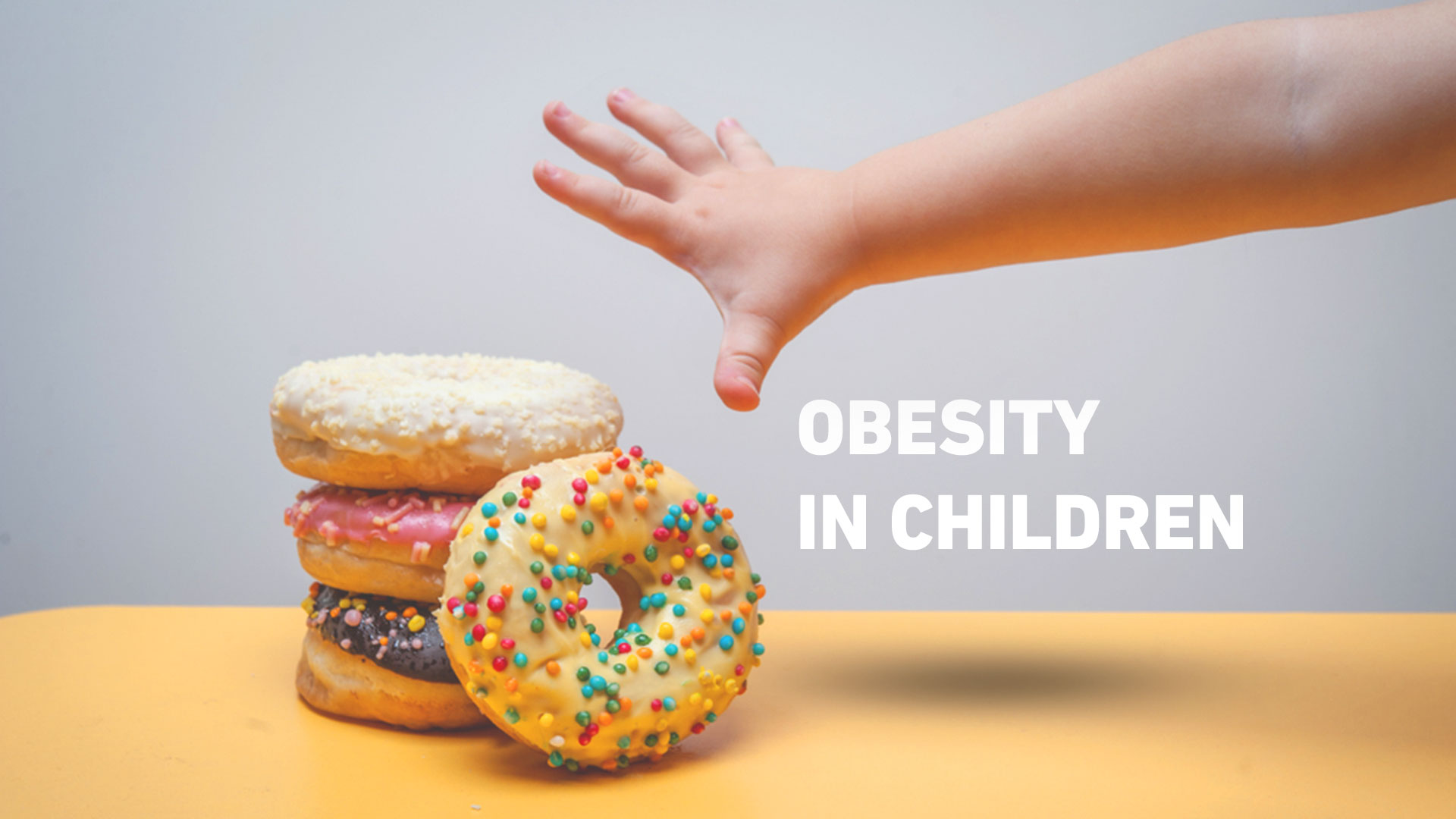
One of the most important factors for a child’s good health are dietary factors, but it is not possible to overlook the other factor that puts your child in good health, such as health, psychological, emotional, social, behavioral, and educational factors from the moment your child is born until s/he reaches adulthood. Many studies have shown that the child’s health begins before birth and should be provided with the right food according to the age stage, from pregnancy and breastfeeding until the completion of the sixth month; introducing solid foods, feeding and supplying them with all the nutrients that guarantee their basic nutritional needs.
The causes of obesity in children
Since the spread of fast food and calorie-filled foods obesity began to spread, which has raised the concern of most doctors and researchers in the Science of physical health, as they conducted many studies to understand the pattern of food that causes obesity. It has been proven that fast food and sugary “unhealthy” snacks contain food that causes eating addiction such as high fructose corn syrup, fats, other sugars, refined carbohydrates, and sodium. There are many other factors that may affect the child’s health either negatively or positively, including genetic factors, environmental factors, and immune factors, which vary depending on the child’s condition and what he is going through.
Childhood obesity is also a serious medical condition for children and adolescents, and it is precisely worrying because excess weight usually puts children at the beginning of health problems that were previously considered adult-specific problems, such as diabetes, high blood pressure, and high cholesterol. Childhood obesity can also lead to low self-esteem and depression.
Symptoms of obesity
Children carry different amounts of body fat at different stages of development, i.e. not all children with excess weight are overweight, and some have larger body frames than the average. The BMI; which provides weight guidance for height, is the acceptable measure of weight gain and obesity. Dr. Sameh Al Nadi, a pediatric and neonatologist, referred to the following signs of child obesity:
- The baby’s weight is bigger than normal. The normal weight of 2.5: 3.5 kg.
- The weight of the child each month is greater than normal. The child increases 450 g per month in the first 4 months, 500 g in the second 4 months, and 250 g in the third 4 months.
- The child’s weight is greater than normal and the weight is measured in a kilo and divided into a square of length in meters, if the rate is higher than 25:30 means excess weight, but if it is more than 30:35 it means obesity.
Some of the reasons for obesity are:
- Increase of breastfeeding doses.
- Hypocyxine, which is secreted by the thyroid gland.
- Overeating sweets.
- Overeating starches.
- Rely on takeaways.
- The presence of genetic genes.
- Lack of movement and prolonged stay on screens.
- Not exercising
When does obesity become worrying for the child?
If the above signs are found in the child, he or she should undergo these tests:
- -Thyroid tests.
- -Make genetic analyses.
- -Follow the baby’s weight constantly on the growth curve.
There are several factors that often work together and increase your child’s risk of weight gain:
Nutritional diet many evidence suggests sugary drinks, including fruit juices and sports drinks, as causes of obesity in some cases.
High-calorie foods intake regularly, such as fast food, baked goods and ready-to-eat snacks, has a direct impact on your baby’s weight gain.
Lack of exercise, non-burning calories contribute to obesity.
Family If your child is from a family that is overweight, he or she may gain weight. Especially if the home environment in which the child is raised is filled with high-calorie foods, unregulated meals and a lack of interest in sports and movement from the family affects his or her interest in health and its importance.
Psychological factors Personal and family stress may increase as some children eat excessively to overcome problems, address feelings such as stress or fight boredom.
Medications some prescription medications can increase your risk of obesity. These drugs include prednisone, lithium, ametriptylene, paxil, gabapentin (Neurontin, Grlise, Horizant), and Propranolol (Inderal, Hemangeol).
Treating childhood obesity
To treat obesity in children, here are a set of guidelines that help the child lose weight, the most important of which are:
- Consistency in breastfeeding for the first 4 months and regulating it.
- Measure thyroid hormone ratio periodically to identify the burning rate in the body.
- Do not eat in front of TV screens or mobile phones.
- Be careful to give your child protein-rich foods.
- Stay away from fast food and fried foods altogether, relying on grilled and boiled. Stay away from salt-rich foods and sugars.
- Be careful to give your child foods rich in vitamins and minerals found in vegetables and fruits.
- Exercise activities are useful for building a child’s body.
Better prevention than treatment
To protect your child from gaining weight, you can provide him with healthy foods and encourage them to engage in regular physical activities choose rewards other than food, from bad behaviors to give a promise of candy to the child in exchange for good behavior. Make sure your baby gets enough sleep; some studies suggest that getting too little sleep may increase the risk of developing obesity.
